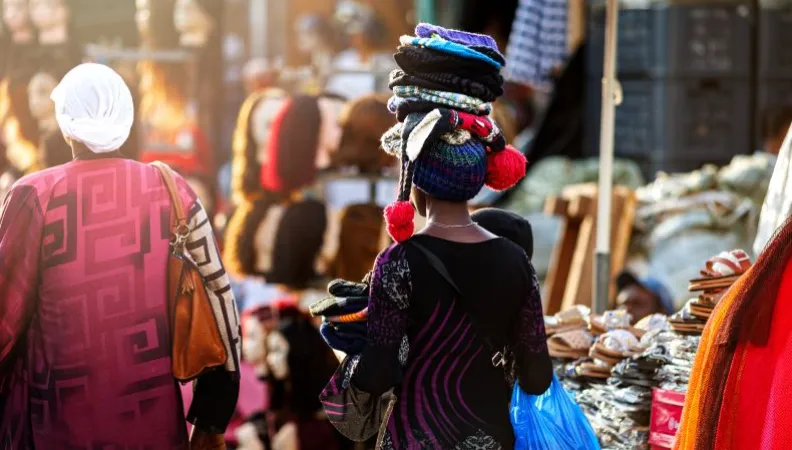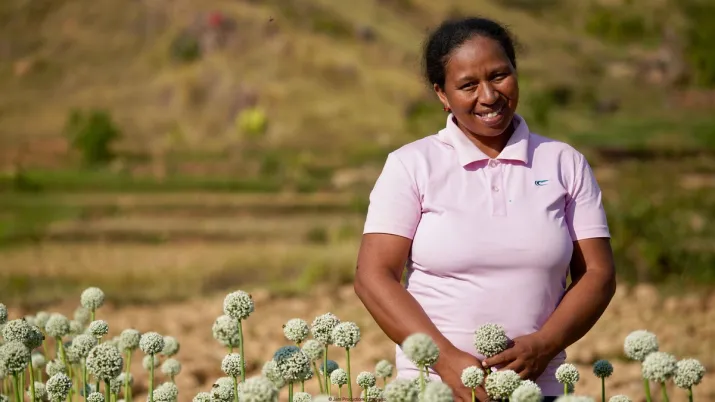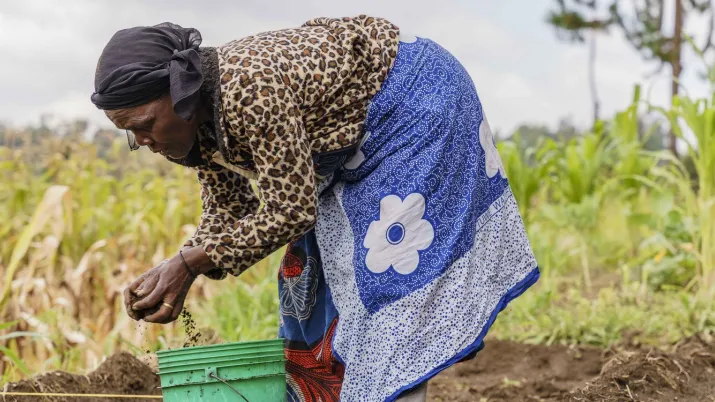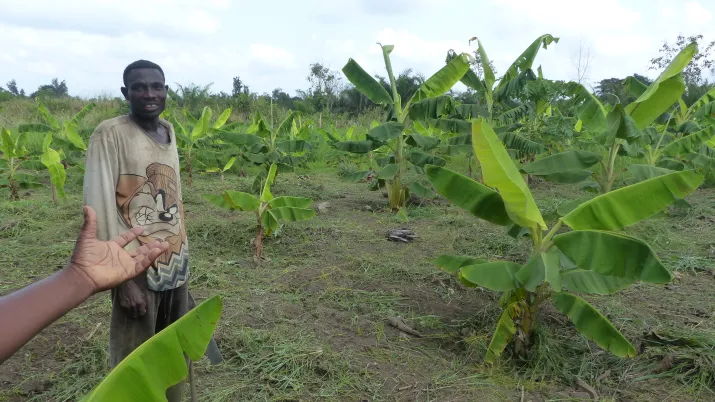Share the page
Côte d’Ivoire: Yopougon’s future embodied by women
Published on

In Abidjan, the Yopougon district embodies the challenges faced by many large African cities: extreme population density, a predominantly informal economy, and persistent inequalities in access to healthcare and education. For more than a decade, AFD has been supporting transformative projects alongside Ivorian authorities to improve daily life for residents, especially women.
At daybreak, Yopougon’s market in Côte d’Ivoire stirs to life in a swirl of dust and the shouts of early customers. Lou Zagnan Toh, president of the women traders' association, captures the anticipation surrounding the upcoming covered market, part of the Bouaké and Yopougon Markets Project (MABY): “In this new market, we won’t have to worry about the rain or the sun. We’ll feel calm and safe. I’m truly happy.”
In Yopougon, residents (especially women) struggle to find stable, formal employment. Around 75% of economic activity takes place in the informal sector, which is predominantly run by women. And yet fewer than 10% have access to formal credit. Coming from the informal economy herself, Lou Zagnan Toh was consulted to help identify traders’ needs in designing this new infrastructure, which aims to boost the local economy. The covered market will span seven hectares and include a semi-wholesale area with 20 unloading docks, along with a retail space of 2,750 stalls, 380 of which will be non-food shops.
From markets to vocational schools: the faces of a transformation underway
Yopougon – the most populous district in Côte d’Ivoire, home to 1.5 million people – also faces major challenges in education and youth employment, particularly for girls: only about 55% of girls are enrolled in secondary school. To help address this, AFD has supported the construction and outfitting of Yopougon’s sector-based vocational high school through the first and second Debt Reduction-Development Contracts (C2D).
Opened in September 2022, the school trains nearly 800 students each year in industrial and agri-food maintenance, offering young people – especially girls – real opportunities to enter technical professions. Rosine Beket, a third-year agri-industry student, shares her experience: “For me, it’s no longer just a school, it’s a real training program. They give us knowledge and the power to choose. They open our minds.”
Improving access to healthcare
Women traders are among the main beneficiaries of Yopougon’s 11 community-based health centers (ESCOM), in a district where 40% of households forgo medical care due to lack of resources. “The vast majority of people who come to our facilities are mothers who work in the markets, who are in the informal sector, or who stay home to care for their children,” explains Clément Ouattara, president of the National Confederation of ESCOMs.
These private, non-profit centers focused on community healthcare received €30.5 million in funding from AFD under the third Debt Reduction and Development Contract (C2D). Today, ESCOM facilities provide over 50% of primary healthcare services in Abidjan.
Working with Ivorian authorities to improve daily life for residents
The development of Yopougon is a priority for Ivorian authorities. The district faces major social challenges, including inadequate or failing infrastructure and limited accessibility.
Since 2012, AFD has mobilized more than €250 million to support urban planning and development, sanitation, education, youth employment, infrastructure, healthcare, and juvenile justice services in Yopougon.
See also
Reshaping European and African partnerships to advance the agroecological transition
Published on February 25, 2025



